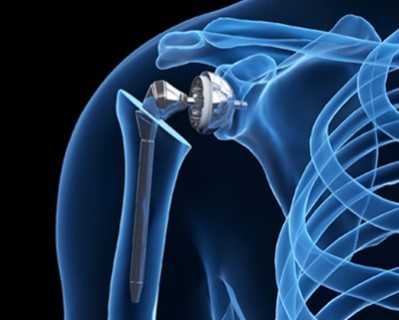Shoulder Replacement
- Purpose: Replaces a damaged shoulder joint with an artificial one to relieve pain and improve function.
- Procedure: The damaged shoulder joint is removed and replaced with a prosthetic implant.
-
Note: The information provided here applies to standard Shoulder Replacement procedures under typical conditions. However, specifics may vary based on individual factors, such as the extent of joint damage, the patient’s overall health, and any complications that might arise during or after surgery. The complexity of the procedure and the patient’s unique circumstances will also influence the recovery process.
Inpatient/Outpatient
Shoulder replacement is typically performed as an inpatient procedure, requiring a hospital stay for monitoring and initial recovery.Hospital Stay Duration
Patients usually stay in the hospital for 1 to 3 days, depending on their recovery progress and any complications that might occur.Type of Anesthesia
Shoulder replacement is generally performed under general anesthesia, ensuring the patient is fully unconscious during the surgery. Regional anesthesia may also be used in some cases.Travel After Procedure
Patients are advised to avoid long-distance travel for at least 4 to 6 weeks after the procedure to allow for proper healing and to monitor for any potential complications.Pre-procedure Preparation
Preparation involves fasting before surgery, adjusting medications, and undergoing pre-operative tests such as blood work and imaging. Patients should arrange for assistance at home during the initial recovery period.Procedure Duration
The shoulder replacement procedure typically lasts 2 to 3 hours. The surgeon replaces the damaged parts of the shoulder joint with artificial components, usually made of metal and plastic.Recovery Time
Recovery from shoulder replacement can take several months. Patients will typically wear a sling for 4 to 6 weeks to immobilize the shoulder, followed by physical therapy to regain strength and range of motion. Full recovery, including return to normal activities, may take 6 to 12 months.Estimated Cost
The cost of shoulder replacement varies depending on the surgeon's expertise, the complexity of the procedure, and geographic location. Patients should consult their healthcare provider for detailed cost information.Post-procedure Care
Post-operative care includes pain management, preventing infection, and ensuring proper healing. Physical therapy is essential for restoring shoulder function. Patients should attend all follow-up appointments and report any signs of complications, such as increased pain, swelling, or difficulty moving the shoulder.

